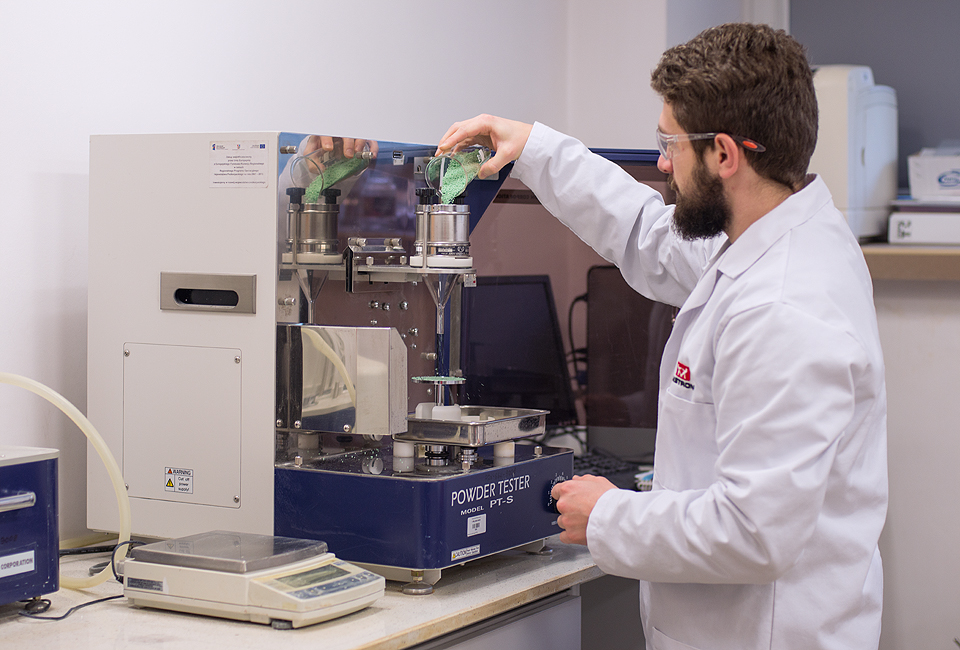
Description of the field of study
The study programme includes general education in the field of basic chemistry, general engineering activities and in the field of chemical technology and engineering, concerning, among others, typical chemical and mechanical processes used in the chemical industry, various physicochemical and analytical methods used to assess the properties of engineering materials, as well as the use of computer tools supporting design, modelling and manufacturing.
The study programme additionally gives the opportunity to individualise the path of education, in accordance with the student's interests, by selecting thematic blocks (specialities): sustainable chemical technologies (green chemical technologies eliminate waste, improve production safety, and its economics) or engineering of polymeric materials (polymers are ideal for all types of engineering applications to replace traditional materials with much simpler materials for manufacturing while maintaining their desired properties).
Graduate's competences
Graduates of first-degree studies in the field of chemical engineering and technology have a systematic, theoretically based general knowledge of the basic branches of chemistry as well as knowledge and engineering skills in the field of material engineering, process engineering, and chemical technology. They know modern technologies for the production of various chemical products, including ceramic, composite, and polymer engineering materials. The degree holders can use modern methods, techniques, and tools for structure identification, qualitative and quantitative analysis, and assessment of the properties of raw materials and products.
Graduates have the structured knowledge required to understand, design and supervise technological processes using a variety of experimental, computational, and simulation methods and techniques. They analyse the functioning of devices and technical systems used in these processes and indicate the possibilities of technology development. Degree holders are familiar with current trends in technology and chemical engineering. They know new technological solutions according to the principles of sustainable development, including use of technologies using natural and renewable resources, planning new pro-ecological technological solutions, waste management, and in particular the use of appropriate recycling technologies.
Graduates have knowledge of a general foreign language at the level of B2 proficiency of the European System of the Description of Language Education of the Council of Europe.
Typical workplaces/jobs
Interdisciplinary technical education allows graduates to take up professional work in the chemical, pharmaceutical, cosmetic, polymer processing, and food industries, as well as biotechnology, energy, and environmental protection. Working as engineers, technologists, and designers, graduates are sought-after engineering and managerial staff for almost all branches of the processing industry. They are also valued employees of industrial research and development laboratories as well as design studios and offices.
Typical positions held are: chemical engineer, process engineer, product engineer, process industry designer, equipment designer, research and development engineer, production specialist, laboratory research specialist, quality control specialist, laboratory analyst chemical installation operator, technological process operator, technical and commercial advisor.



